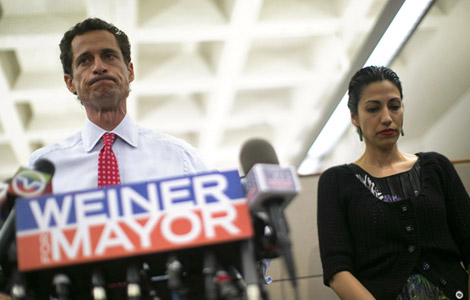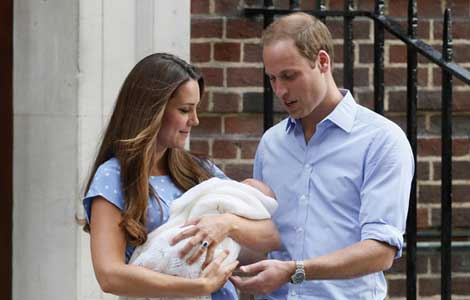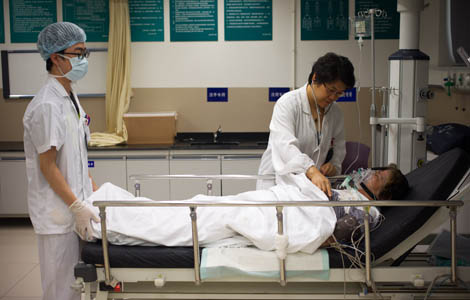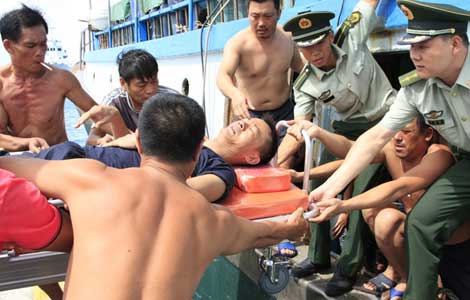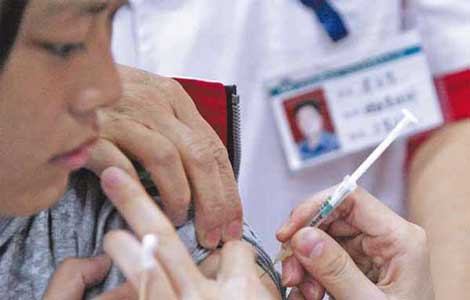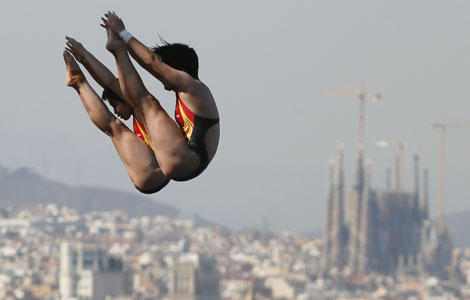Police crack down on drugmakers
Updated: 2013-07-24 01:50
By Wang Zhenghua (China Daily)
|
||||||||
Police have visited the Shanghai office of British drugmaker AstraZeneca, as China intensified a crackdown on commercial corruption in the medical sector.
Amid a criminal investigation into another British pharmaceutical giant, GlaxoSmithKline, officers from Shanghai's Public Security Bureau are said to have detained a sales employee of AstraZeneca after visiting its sales office in Shanghai on Friday.
"We believe that this investigation relates to an individual case, and while we have not yet received an update from the public security bureau, we have no reason to believe it is related to any other investigations," a spokesman for the pharmaceutical company told The Telegraph on Monday, adding that the company "does not tolerate any illegal or unethical conduct in our business activities".
The drugmaker's China office could not be reached for comment on Tuesday.
Amid China's clampdown on commercial corruption in the medical sector, Glaxo-SmithKline is being investigated for an alleged bribery and drug pricing scandal, while Belgian drugmaker UCB said last week that local authorities visited its office in China.
The raid — in a sector where business insiders said bribery is very common — has aroused a stir in the industry.
A salesperson with Eli Lilly and Co, a US-based transnational pharmaceutical maker, said on Tuesday that there have been a lot of discussions among industry workers that it is a difficult time for foreign pharmaceutical companies and their workers, especially sales people.
"It's hard to see for now how the country's sudden brake on commercial corruption in the medical sector will affect each individual's sales performance, but we feel very dismayed," said the source, who asked to be anonymous.
"I don't understand why the foreign firms are singled out in the crackdown. We are definitely not the fundamental cause to generate the disorder in the medical sector or a main contributor in the strained relations between doctors and patients," he added.
The National Health and Family Planning Commission, on the other side, pledged to deepen the medical reforms.
A mechanism will be set up to replace the current practice of hospitals relying mainly on revenue from medicine, and a blacklist system will be improved for individuals and companies involved in bribery, Li Bin, the commission's minister, said recently.
Medical experts said the crackdown can deter corruption, but the fundamental solution relies on the separation between those who write prescriptions and those who select and purchase the medicine.
Liu Xianquan, dean of the Law School at East China University of Political Science and Law, said that it is the first time that China has come up with such powerful measures to fight bribery by foreign pharmaceutical makers, and the action can serve as a deterrent.
"Commercial corruption in the medical sector is so harmful that it not only pushes up the price of medicine, but also prevents doctors from prescribing the most effective medicine for a specific disease because doctors would opt for drugs promoted by those who paid bribes," he said. "The department responsible for medicine purchases should be independent from doctors and can only make the purchase under strict supervision."
Pricing investigation
Media reported on Tuesday that the National Development and Reform Commission has launched an investigation into 60 drugmakers, including foreign companies and more than 10 listed domestic companies.
The foreign companies include Merck Sharp & Dohme, Sandoz and Glaxo-SmithKline. The listed domestic companies include Harbin-based Gloria Pharmaceuticals, Zhejiang Hisun Pharmaceuticals Co in Taizhou, and Chongqing-based Southwest Pharmaceuticals Co.
Thirty-three of the pharmaceutical makers were investigated for their products’ factory prices, while 27 others, including GlaxoSmithKline and Jiangsu Hen Rui Medicine Co, were probed for their production costs.
The NDRC said the list of enterprises was drawn randomly, and it aimed to find out the costs and pricing in medicine production and logistics so that it can adjust prices. But industry insiders worried that more measures are to follow.
The NDRC conducted an investigation on the production cost of 28 types of medicine in 2006, which was followed by lower retail prices for 67 anti-tumor drugs.
A popular opinion among insiders believes the investigation was launched because the pharmaceutical industry is an industry of exorbitant profits.
Ten listed drugmakers registered a gross profit of more than 80 percent. Among the 176 listed pharmaceutical firms, some 70 percent registered a gross profit of more than 30 percent.
Most Viewed
Editor's Picks

|

|

|

|

|

|
Today's Top News
US diplomat says China ties a priority
Nation falling short on IT security
Weiner not dropping out of NYC mayoral race
Death toll from H1N1 in Argentina reaches 38
DPRK halt on rocket facility confirmed
Celebrations erupt after word of regal delivery
Office to close due to protest in Manila
Multinationals' dependence on China grows
US Weekly

|

|
